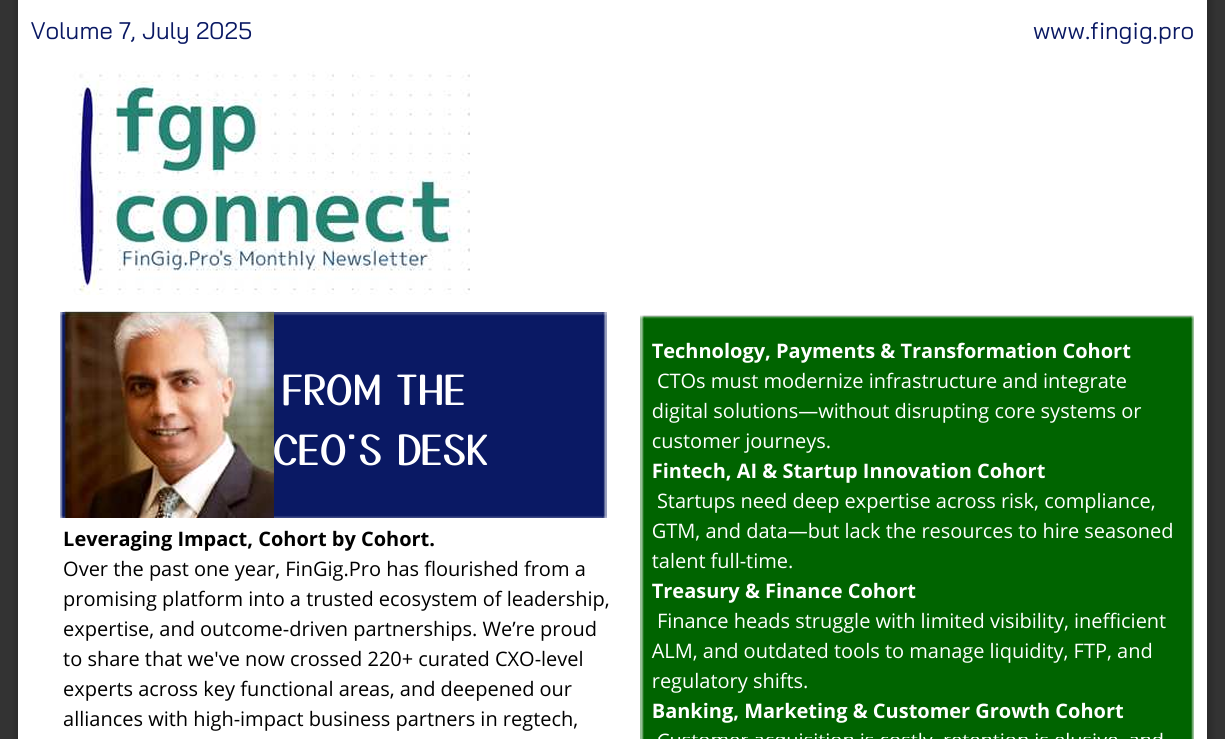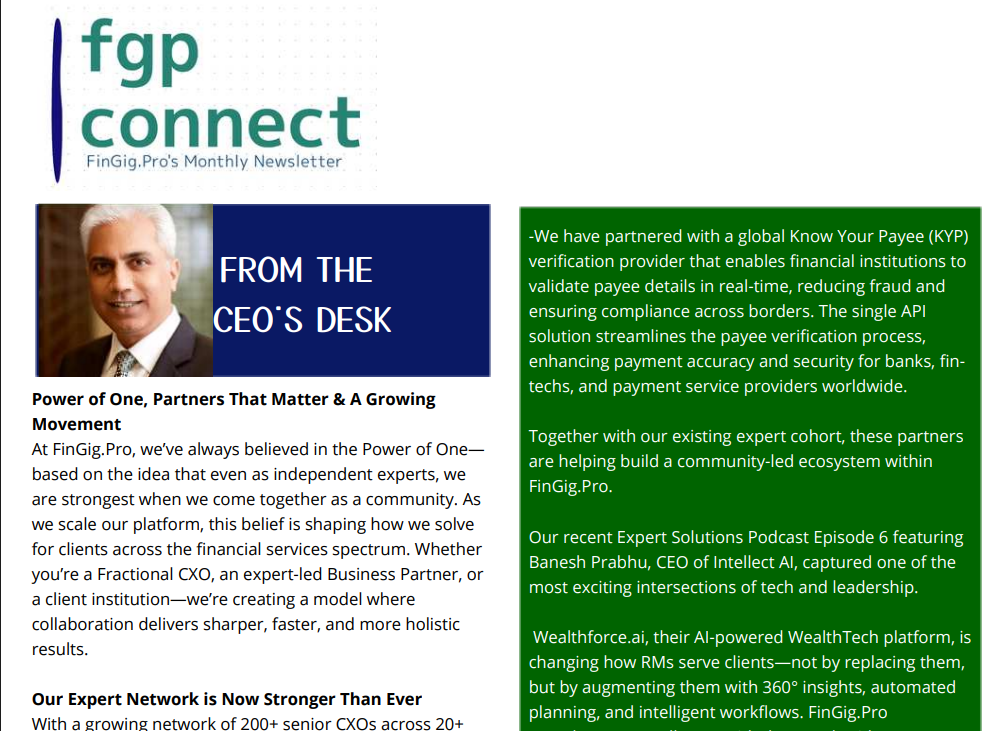One can well ask why does the gig economy have such a great impact on the future of work, and what opportunities does it present for both businesses and workers? How does it specifically impact the financial sector?
According to an article by Paramjit Ahluwalia, “the financial services sector has witnessed a technology revolution, with organizations investing in digitization and innovation, and increasing their focus on customers’ needs to provide personalized services. In their bid to keep pace with these trends, companies are changing the way they work. Businesses are increasingly looking to expand their teams by turning to external consulting talent to stay ahead of the competition.”
Financial institutions are inclined to hire more gig workers, as it helps them scale their operations and gives them the flexibility to add staff with varied skill sets within the financial domain faster than making lateral hires from the market.
In the insurance sector, gig workers play an important role during times of higher insurance claims (such as severe storms and floods), giving companies the flexibility to use need-based hiring at different levels and pay scales, adds Paramjit.
The Financial Services (including insurance) industry has the second-largest share of gig workers, as per BCG research on 11 global markets, with specialists in artificial intelligence and machine learning accounting for the largest chunk of gig workers.
What is the gig economy?
In general terms, Future Work Expert Oksana Lavri poses a relevant question. “Have you ever used an app to call a freelance taxi driver, book a vacation rental, order food, or buy some homemade goods? These are all examples of a gig economy.
In simple terms, the gig economy is about exchanging labour for money between individuals or companies through digital platforms that directly connect suppliers and customers on a short-term basis and are pay-as-you-go.
According to experts, the gig economy has ballooned in recent years as different gig economy apps arrive to tackle nearly every facet of the service industry. What propelled the concept of gig economy is the changes brought about by the coronavirus pandemic, as people staying home and minimizing contact opt for personal home deliveries for many of their daily chores and consumer necessities.
Offering a fair deal
Of course, as the gig economy expands and more companies functioning on the model are found, the challenge for politicians and officials becomes to balance innovation that creates jobs, and the need to ensure that companies offer workers a fair deal. The gig economy has also gradually become an excellent source of income and job opportunities for students, working parents, and people who are otherwise occupied with home care work.
According to a study carried out by Deloitte, temporary and “gig” workers will be an increasingly important part of the workforce, which presents both opportunities and challenges for organizations. The growing popularity of gig labour reflects businesses’ reluctance to hire full-time employees in an uncertain economy and as well as the increased willingness of young people, in particular, to sell their services to the highest bidder..
The growth of the gig market
Organizations that need quick access to skills to complete a project often find it easier to hire them on a short-term basis rather than spend months scouring résumés, conducting interviews, and onboarding new hires. Bringing in temporary workers is not only faster but is also a good way to vet people on the job for possible later employment.
Gallup reported in 2018 that about 36% of US workers were involved in the gig economy, a figure that has doubtless grown since then.
The most stunning statistic is that the gig workforce is on track to surpass the full-time workforce in size by 2027, according to a survey commissioned by Upwork and the Freelancers Union and published in Forbes.
In a nutshell, the salient features this article touches upon are the following:
- The financial services sector has witnessed a technology revolution, with organizations investing in digitization and innovation, and increasing their focus on customers’ needs to provide personalized services.
- Financial institutions are inclined to hire more gig workers, as it helps them scale their operations and gives them the flexibility to add staff with varied skill sets within the financial domain.
- The Financial Services (including insurance) industry has the second-largest share of gig workers, as per BCG research on 11 global markets,
- According to experts, the gig economy has ballooned in recent years as different gig economy apps arrive to tackle nearly every facet of the service industry.
- The growing popularity of gig labour reflects businesses’ reluctance to hire full-time employees in an uncertain economy
How senior Experts on Demand integrate within the organisations and how organisation define their engagement model is what HR teams will need to pro-actively work on and make the onboarding and management of such Expert seamless and furtful for both sides
Do not hesitate to share your comments below as FinGig.Pro is a global network of Experts on Demand and we are here addressing just this need of financial Services organisations
If you are interested to join this network then click here REGISTER AS AN EXPERT



